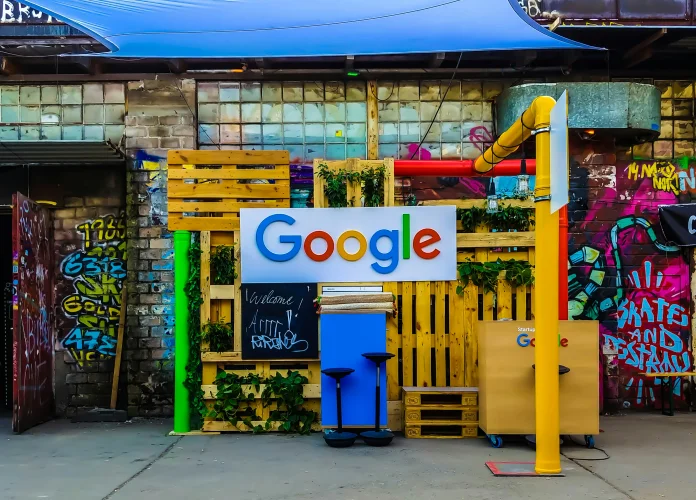What is Local SEO and Why is it Important to Your Digital Marketing Strategy?
Local SEO is a bit different than regular SEO, and knowing how to optimize your content strategy for local search will be the key to growing as a business in your community.
If you are currently not using local SEO techniques as part of your organic marketing efforts, keep reading to find out why local SEO is essential to expanding your local customer reach and how to reap its benefits with actionable tips!
What is Local SEO?
If you know anything about marketing, you probably understand the power of search engine optimization for organic business growth. You may have even invested in an SEO content strategy to get your business in front of customers looking to buy what you offer.
However, unless you also direct your SEO efforts toward local customers’ search patterns, you could be losing out on some of the most loyal customers you can find – your neighbors!
Essentially, local SEO deals with optimizing your service or product search engine strategy for a particular location. It is an essential strategy to integrate if you have a physical storefront or local business presence and desire to be found in local search results.
The strategies and techniques behind local SEO are geared toward making your business easier to find in your geographic region by individuals who work, live, or shop there. They involve optimizing your website and your business’s digital presence with local content, keywords, backlink building, and other on-page and off-page SEO citation techniques.
For example, if you live in Chicago, using “Chicago” strategically when describing your services or products is one way to include local SEO in your content strategy. In the case of our Chicago-based marketing agency, we would focus on optimizing our content, web pages, and service listings for “local SEO services in Chicago” and related keywords to better target local businesses that prefer working with Chicago-based marketing agencies. That’s the power of local!
Is Local SEO the Same as Regular SEO?
Although the general premise and methodology of local SEO and regular SEO are the same, local SEO is different since its strategy and methodology are rooted in geographic parameters.
Whereas regular SEO accounts for national search popularity and difficulty of topics in a specific niche, local SEO takes that a bit further by filtering those topics through a lens of local geography, events, trends, and other community-specific factors.

Why is a Local SEO Strategy Important?
Did you know that 46% of all Google searches are local? This highlights the vast importance of optimizing content for local search.
Local search came about as Google figured out that individuals were interested in finding businesses in their immediate geographic area. This prompted Google to create proximity additions to its algorithm to account for searchers’ desire to get the best local business results for a specific service or product.
This is why search engines are currently primed to filter out results based on local keyword searches such as:
- ‘Particular type of business’ in suburban Chicago
- ‘Particular type of business’ near me
- ‘Particular type of business’ near downtown Chicago
However, the location-specific keywords are only one way Google picks up on location parameters to deliver search results. Another way is by reading the business address location on a business’s website.
Therefore, even if searchers don’t use location-specific keywords in their search queries, the SERPS that Google generates for someone searching for a ‘particular type of business’ in Chicago will be the businesses that include their address on their website and other location pages.
To truly stand out and capture local leads, optimize your business for a strong local SEO presence. This strategy will usher profound and steady growth in your local community, and with time, help you attain word-of-mouth recommendations, local media profiling, and returning loyal customers.
The Benefits of Local SEO
The benefits of local SEO are enormous, especially if you have a solid physical presence in your community or are one of a few businesses offering specific products or services in your location. Here are some fundamental ways you can benefit from a local SEO strategy:
- Targeted Traffic: When you focus on getting local leads in your specific location, you will narrow down a pool of cool leads (regular SEO) into warm leads by getting in front of a more targeted audience that wants to support local businesses.
- Competitive Edge: Instead of competing with national businesses, a local SEO strategy can help you stand out as the best business in your niche in your neighborhood, city, or state. By being found more easily by your target audience, you will have a competitive edge over local businesses that don’t use local SEO methods.
- Cost-Effectiveness: Local SEO has a better ROI than regular SEO. By being more specific, it not only lowers the cost of your overall marketing spending but also increases conversion rates due to your competitive edge.
- Reviews and Loyalty: Local customers are more likely to develop business loyalty due to the proximity and personalized nature of your business. This loyalty can garner more positive reviews and help elevate your business presence online and offline.
- Collaboration With Other Local Businesses: Local SEO can help you get found by businesses that want to collaborate through social media or mutually beneficial local events. This exposure can help you connect with potential buyers personally and accentuate your online presence through media profiling.
Top Platforms to Boost Local SEO
Google My Business (GMB)
Google My Business is a free listing tool provided by Google that helps businesses manage their online presence on the search engine, including Google Maps. In fact, Google reported that Google Maps searches for “shopping near me” have grown 100% internationally year after year.
Simply imagine a potential customer who is looking for coffee shops in your neighborhood and using Google Maps to save them and visit them. Without an optimized GMB profile, your coffee shop would not show up on the maps, and you would lose out on valuable business.
This is why you should ensure that your GMB profile is optimized with business information, photos, offers, updates, and customer reviews so that your listing stands out from the competitors and new customers can find you through Google’s various platforms.
Local Directories
Being listed in local directories like Yelp, Facebook Business, Apple Maps, YellowPages, and even your local Chamber of Commerce can help you gain more online visibility and help with your SEO link-building efforts. These directories have high website authority and can help you elevate yours by associating with them.
The best part is that these directories are specifically designed to help customers find local businesses and their listings can be filtered by business type, location, ratings, and more. When looking to discern which local directories to list on online, do a bit of research to see which directory platforms have the highest usage rates and traffic.

Tips to Improve Local SEO
If you’re looking to improve local SEO or better incorporate it into your digital marketing strategy, always conduct thorough competitor research in your location and see what methods your top competitors are applying to grow locally.
Then, reverse-engineer their successes and incorporate the local SEO tips below to solidify your digital presence.
Create Local Content
Just like you do with regular SEO, creating a content strategy around topics of interest such as events, news, and community developments can help you attract more targeted local leads.
Even though blog content is the most popular means of local content creation, you can also stand out and impress your leads by offering local guides and resources as lead magnets. By speaking “the language” of your community, you can better connect with your prospects on a personal level.
Leverage Internal Links
Internal linking is one of the best strategies to leverage local keywords to your advantage. For example, by choosing descriptive anchor text in your content that is specific to your product, service, and location, you can bring local patrons to your website, increasing your business exposure and website domain authority.
Linking from your home page to specific location pages on your website can also help strengthen the authority of those respective pages, helping you rank higher for location-specific keywords. You can do this through strategically placed links or under the “location” and “services/product” sections of your homepage.
Optimize Your Web Design for Mobile Users
Since over half of online searchers use their mobile phones to search the web, you should optimize your web presence for various mobile devices. When it comes to local up local businesses through Google Maps and other platforms, having a website that is optimized for mobile users can improve your overall local SEO efforts.
By investing in responsive web design that is mobile-user-friendly, fast, and simple to navigate, you can boost your local SEO performance and lead generation.
Create Location Pages
If your business serves multiple locations or offers multiple services, creating pages for each location and service can help improve your local SEO. Location pages don’t have to be listed on your website menu and can simply exist as stand-alone pages that are found through search engines.
Location pages enable you to list each of your business’s locations, features, and benefits with unique keywords, URLs, and content that will capture more local traffic than if you simply relied on your home page.
Why Location Pages Optimize Local SEO
Location pages are pages that are optimized with an address and location-specific keywords and are ideal for businesses that operate in various locations. These pages use tailored content that is directed toward the needs of local communities. This content can be service or product descriptive or can revolve around local events, history, perspectives, and best-of lists.
For example, if you have a location branch in Evansville and another in downtown Chicago, you can create multiple pages for them that list your address, a variety of local SEO service/product keywords (ex. Local SEO Marketing Agency in Downtown Chicago), and a thorough description of your offers. Simply ensure that all the content on these pages is original and that you use different keywords as your main keywords.
When it comes to more technical elements of location pages, the more of the following elements you check off, the more frequently will Google include your location pages in its local search results:
- Location-based primary and secondary keywords
- Internal and external links with keyword-rich anchor text
Ensure that you have at least 500 words on each page - Prioritize the quality of content over the number of words
- Answer any local questions that align with your business solutions
- Regularly revise your content to reflect any business or community updates
- Include a free resource to capture leads
- Showcase reviews, especially of local customers
- Geo-tag your local images with keywords and locations
Local SEO Services
Investing in local SEO will bring you more targeted traffic and a greater return on investment than regular SEO due to less competition. Local SEO will also help you gain more local visibility, establish mutually beneficial community partnerships, and generate customer loyalty. When you direct your marketing efforts closer to home, you’ll have more leverage to make your business stand out while nurturing and investing in your community.
At Idea, we apply local SEO efforts to our own business growth and have worked with some of the best businesses in the Chicago area as a result. If you would like to learn about our local SEO services and how we can help you come up with a winning local SEO strategy, feel free to contact us.


